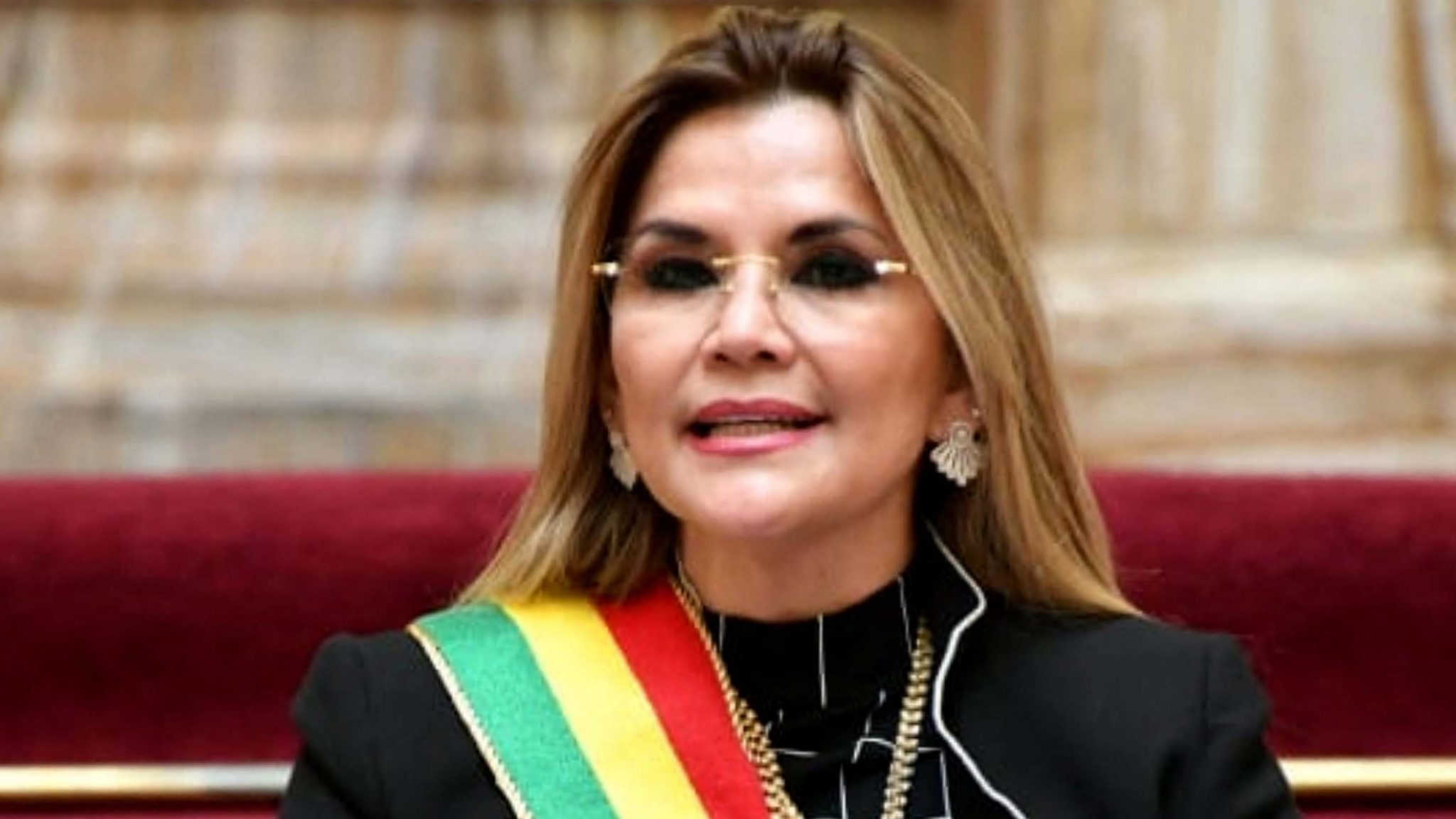By AFP
(FILES) This file handout photo taken on August 06, 2020 shows former Bolivian interim president Jeanine Anez delivering a message during the celebration of the 195th anniversary of the Bolivian Independence at the government palace in La Paz. – Bolivia’s former interim president Jeanine Anez was arrested early Saturday in relation to the 2019 political crisis in which she replaced predecessor Evo Morales, according to a government minister.The conservative politician had faced an arrest warrant on charges of terrorism, sedition and conspiracy over an alleged coup after she replaced Morales in November 2019 when he fled the country during widespread protests against his re-election. (Photo by – / Bolivian Presidency / AFP)
A human rights organization has pressed Bolivian authorities for information on the health of jailed ex-president Jeanine Anez, who attempted suicide last month, the group said Wednesday.
Anez, 54, has been in prison since March, accused of allegedly leading a coup in 2019 to oust then-president Evo Morales.
On August 21, one of Anez’s lawyers said she had tried to take her own life a day after prosecutors filed genocide charges against her over the death of demonstrators during protests in 2019.
Anez has denounced the charges as a political prosecution.
Bolivian officials had announced Anez tried to harm herself, with Interior Minister Eduardo del Castillo saying she had suffered only “scratches” on her arm and was in a stable condition.
Anez’s family says she suffers from depression and other medical problems and have repeatedly asked that she be transferred to a hospital, but the requests have been denied.
The Inter-American Commission on Human Rights (IACHR) sent a letter to President Luis Arce’s government, the group’s spokesperson told AFP on Wednesday, without providing details.
According to Bolivian media, the letter, dated August 31, is addressed to Foreign Minister Rogelio Mayta and asks him to provide information within seven days on Anez’s “physical and mental health,” as well as her access to medical care.
Anez’s legal team appealed for IACHR’s help last week, saying they had exhausted all the legal avenues in Bolivia.
Conservative Anez came to power in November 2019 after Morales resigned and fled the country following weeks of violent protests over his controversial re-election to an unconstitutional fourth term.
The specific accusation of genocide relates to two incidents in November 2019, in which a total of 22 people died.
After Morales resigned, Anez, as the most senior parliamentarian left, was sworn in as interim president, but her political opponents denounced the move as a coup.
Under Anez’s administration, Bolivia held peaceful, transparent elections in October 2020, in which Morales’s leftist protege Luis Arce won a landslide victory.
Arce then vowed to pursue those he accused of staging a coup.
Anez also faces charges of terrorism, sedition and conspiracy.
Bolivia’s opposition has decried the lack of separation of powers in the country, saying the courts, election officials and prosecutors are all loyal to Arce.
Anez’s detention has sparked widespread international condemnation.

